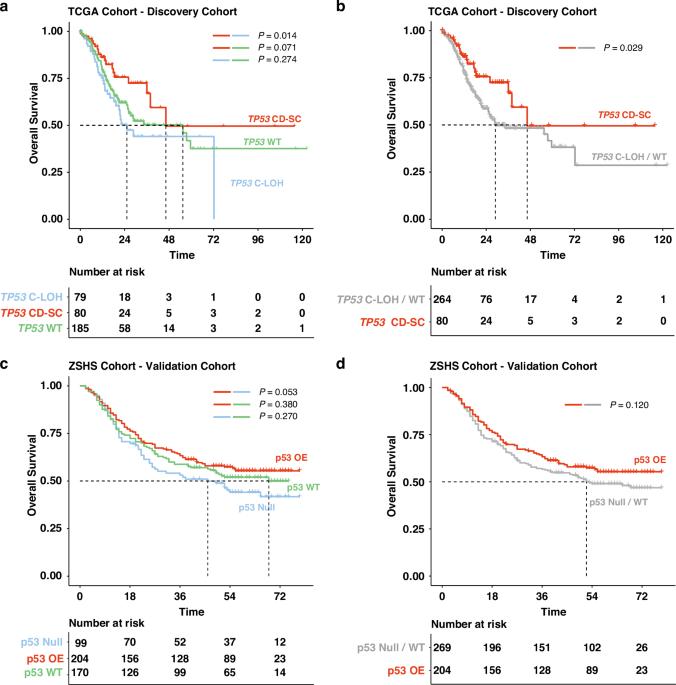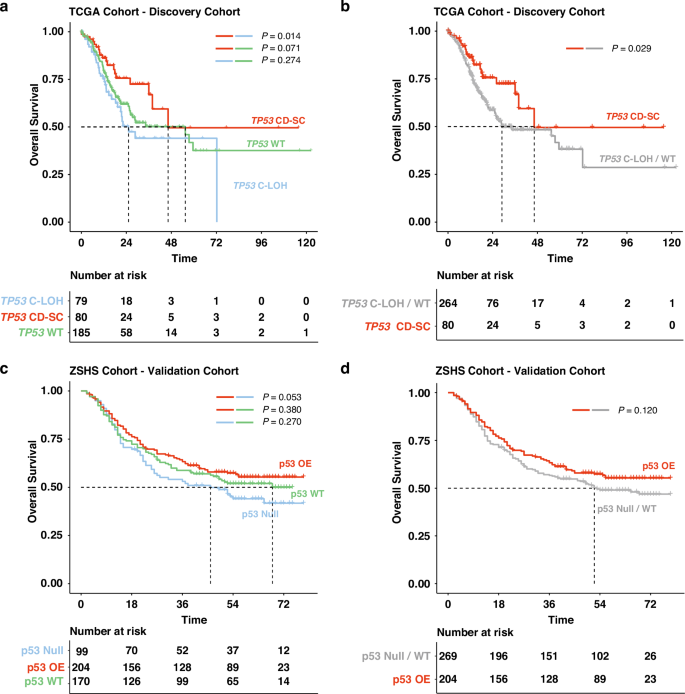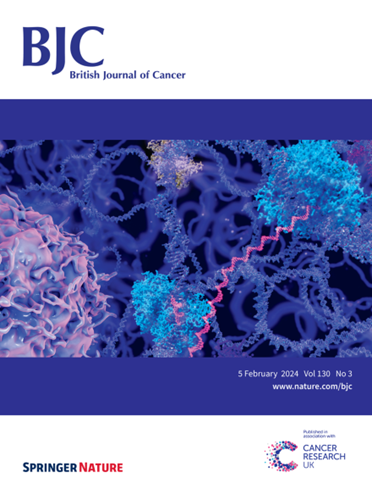Impact of clonal TP53 mutations with loss of heterozygosity on adjuvant chemotherapy and immunotherapy in gastric cancer
IF 6.4
1区 医学
Q1 ONCOLOGY
引用次数: 0
Abstract
This study aimed to reveal the effect of TP53 status on clinical outcomes and underlying mechanism in gastric cancer (GC) patients. TP53 status was divided into three groups according to genome sequencing, namely clonal mutations with LOH (C-LOH), clonal diploid or subclonal mutations (CD-SC), and wild type (WT). The p53 protein activity was divided into over-expression (OE), Null and WT according to immunohistochemical staining. Four cohorts, including the TCGA, SMC, ZSHS and FUSCC cohort, were analyzed for association between TP53 mutation status and clinical outcomes and the underlying mechanism. In TCGA cohort, TP53 CD-SC were associated with superior overall survival compared to TP53 C-LOH cases. GC patients could benefit from ACT only in TP53 CD-SC/ p53 OE and TP53/ p53 WT subgroups, and TP53 C-LOH subgroup demonstrated the worst response to pembrolizumab among three subgroups. Genomic and immunophenotypic deconvolution revealed that TP53 C-LOH, CD-SC and WT differed for genomic and immune-related features. TP53 C-LOH GCs with genomic instability and immune evasion phenotype have poor clinical outcomes in patients treated with ACT or immunotherapy.


具有杂合性缺失的 TP53 克隆突变对胃癌辅助化疗和免疫疗法的影响。
背景:本研究旨在揭示TP53状态对胃癌(GC)患者临床结局的影响及其内在机制:本研究旨在揭示TP53状态对胃癌(GC)患者临床预后的影响及其内在机制:方法:根据基因组测序将TP53状态分为三组,即克隆突变伴LOH(C-LOH)、克隆二倍体或亚克隆突变(CD-SC)和野生型(WT)。根据免疫组化染色将p53蛋白活性分为过度表达型(OE)、Null型和WT型。研究人员对TCGA、SMC、ZSHS和FUSCC队列等四个队列进行了分析,以了解TP53突变状态与临床预后的关系及其内在机制:结果:在TCGA队列中,与TP53 C-LOH病例相比,TP53 CD-SC病例的总生存率更高。只有TP53 CD-SC/ p53 OE和TP53/ p53 WT亚组的GC患者能从ACT中获益,而在三个亚组中,TP53 C-LOH亚组对pembrolizumab的反应最差。基因组和免疫表型解旋显示,TP53 C-LOH、CD-SC和WT在基因组和免疫相关特征方面存在差异:结论:具有基因组不稳定性和免疫逃避表型的TP53 C-LOH GCs在接受ACT或免疫疗法的患者中临床预后较差。
本文章由计算机程序翻译,如有差异,请以英文原文为准。
求助全文
约1分钟内获得全文
求助全文
来源期刊

British Journal of Cancer
医学-肿瘤学
CiteScore
15.10
自引率
1.10%
发文量
383
审稿时长
6 months
期刊介绍:
The British Journal of Cancer is one of the most-cited general cancer journals, publishing significant advances in translational and clinical cancer research.It also publishes high-quality reviews and thought-provoking comment on all aspects of cancer prevention,diagnosis and treatment.
 求助内容:
求助内容: 应助结果提醒方式:
应助结果提醒方式:


